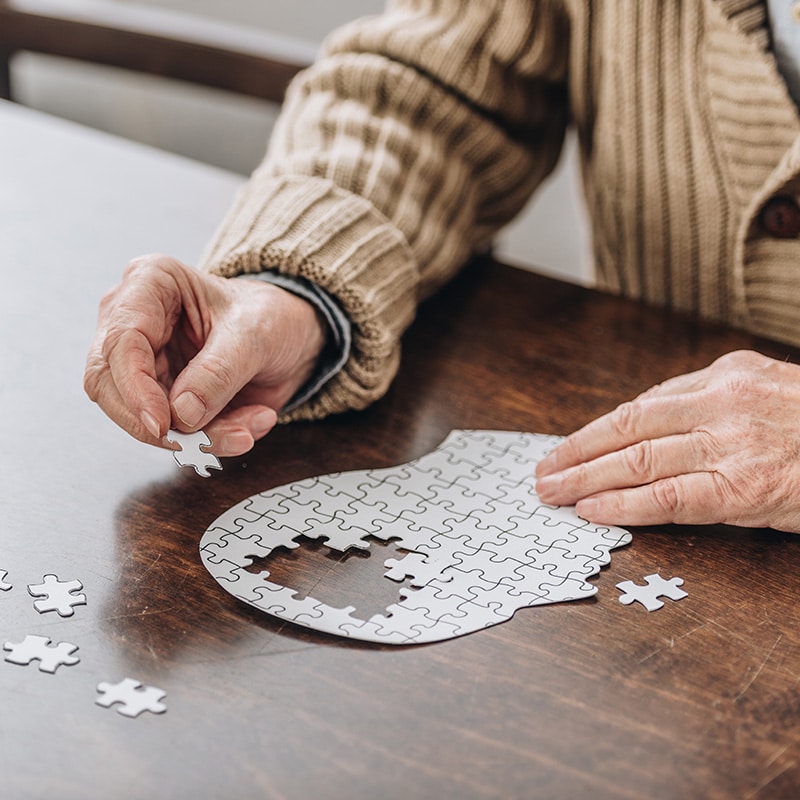In-Home Alzheimer’s Care
- Hourly, 24-Hour, or Live-In Home Care
- Respite Care
- Consumer-Directed Personal Care
- Medicaid Community Services
- Veteran’s Aide & Attendance
- Private Duty

In-Home Alzheimer’s Care in Wasilla, Anchorage, Soldotna and surrounding areas in Alaska.
A Caring Approach to In-Home Alzheimer’s Care
Alzheimer’s and Dementia Home Care Includes:
- Companion Care Services
- Personal Care Services
- Memory Care
- 24-Hour Home Care
- Part-Time Home Care
- Full-Time Home Care
- Awake Overnight Home Care
Understanding Alzheimer’s and Dementia Care
Alzheimer’s disease and other forms of dementia can affect memory, reasoning, and daily functioning. The changes often lead to confusion, anxiety, and difficulty with basic tasks. In-home dementia care focuses on providing consistent support in familiar surroundings, which can help reduce stress and enhance overall quality of life.
Genacta In Home Care’s approach centers on creating personalized care plans that address the specific needs of each client. Whether assisting with daily routines or offering companionship, caregivers are trained to foster a sense of trust and security.
Benefits of In-Home Alzheimer’s Care
In-home Alzheimer’s care offers numerous advantages over other care options. Staying at home allows individuals to maintain a sense of independence and comfort. Familiar environments can ease confusion and provide a grounding effect for those with memory-related challenges.
Care services include help with personal hygiene, meal preparation, medication reminders, and mobility assistance. Beyond these practical tasks, caregivers provide emotional support and meaningful engagement, helping to preserve dignity and improve day-to-day experiences.

How Genacta In Home Care Supports Families
Caring for a loved one with Alzheimer’s or dementia can be overwhelming. Genacta In Home Care steps in to share the load, offering professional expertise and compassionate support. Families gain the confidence of knowing their loved one is in capable hands, allowing them to focus on spending quality time together.
Genacta’s caregivers undergo specialized training in Alzheimer’s and dementia care, equipping them to handle complex situations with patience and understanding. By prioritizing personalized care and clear communication, Genacta ensures that clients and their families feel supported every step of the way.
Choosing the Right Care Plan
Every individual’s journey with Alzheimer’s or dementia is unique. Genacta In Home Care tailors its services to match the evolving needs of each client. Initial consultations help families determine the level of care required, whether it’s part-time assistance or 24-hour support.
Key considerations include:
Level of Assistance Needed: Assessing daily tasks like dressing, bathing, and meal preparation.
Preferred Schedule: Setting up care plans that fit seamlessly into the client’s routine.
Emotional and Social Needs: Incorporating activities that bring joy and foster connection.
Empowering Families Through Thoughtful Care
Frequently Asked Questions About Alzheimer’s and Dementia Care
In-home Alzheimer’s care provides professional assistance to individuals with Alzheimer’s disease within the comfort of their homes. This includes help with daily tasks, emotional support, and specialized care to meet their unique needs.
Signs include difficulty managing daily tasks, memory loss affecting safety, or increased caregiver stress. A consultation with a professional care agency like Genacta In Home Care can help determine the right level of care.
Yes, it offers personalized support in a familiar setting, reducing stress and confusion. Caregivers focus on maintaining independence, comfort, and engagement to enhance daily experiences.
Activities include memory games, light physical exercises, art projects, and music therapy. These help stimulate the mind and create moments of joy.
Genacta In Home Care offers customizable plans ranging from a few hours a week to 24-hour care, ensuring that support matches the family’s needs.
Trained caregivers use techniques like redirection, reassurance, and structured routines to manage behaviors such as agitation or confusion while maintaining the individual’s dignity.
Yes, in-home care can adapt to the evolving needs of clients, including advanced care for those in the later stages of Alzheimer’s, focusing on comfort and safety.
